
As the sun rose on the second day of the Professional Musky Tournament Trail’s Ranger Boats World Championship in northern Iowa last October, the team of Nate Osfar and Matt Raley found themselves with a serious case of dry net. After registering no muskies on the first day, Sunday loomed large as 20 mph winds and rain gave way to breaks in the sky, sun and calmer waters. Gliding in to a shallow weed edge, Raley tacked on a Medussa and went to work.
He didn’t have to wait long.
After a brief fight and routine netting, the musky was registered, and Osfar and Raley were on the board. After a gear check and high-five, Raley connected again on the very next cast. With two fish now registered, and a racehorse-worth of adrenaline in their systems, the team focused on pulling every active musky they could off that same 200-yard stretch of weeds.
From the front of the boat, Raley yelled back to Osfar, “Quick pops, little hops!”
Osfar took a moment to watch how Raley was working the Medussa in the shallow cover. He altered his retrieve and rod cadence to match and was rewarded with the third musky of the morning.
The Medussas danced up and down, frantic through the weed edge, and the fish ate. When the window of action finally closed only two hours had passed, but a total of five muskies had been registered by the pair, enough to win the tournament with a bit of breathing room.
Quick pops. Little hops. Those two sentence fragments resonate in the story of the championship due to the nature of the information Raley conveyed to Osfar. The important detail wasn’t in bait type, color or size. Instead, it was the cadence and rhythm of the retrieve. Bait selection is critical, of course, but working those baits in a manner conducive to fish activity and mood is vitally important to maximize the chances of success.
This story is from the April/May 2020 edition of Musky Hunter.
Start your 7-day Magzter GOLD free trial to access thousands of curated premium stories, and 9,000+ magazines and newspapers.
Already a subscriber ? Sign In
This story is from the April/May 2020 edition of Musky Hunter.
Start your 7-day Magzter GOLD free trial to access thousands of curated premium stories, and 9,000+ magazines and newspapers.
Already a subscriber? Sign In
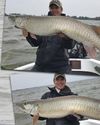
What can Current Do For You?
WATER FLOW IN LAKES IS SUBTLE AND OFTEN OVERLOOKED. BUT MUSKIES USE IT, SO WHY SHOULDN’T YOU?
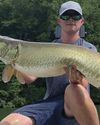
Mountain State Muskies In Spring
CATCH MUSKIES DURING TIMES WHEN NOTHING IS PREDICTABLE

Winter Presentations For Southern Rivers
Winter has arrived, yet in the South it’s still mild enough to keep fishing with the exception of maybe a week or two of an Arctic front.

Tune Up For The Season Ahead
Have you started making your plans for the upcoming fishing year?
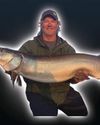
Rob Manthei
Guide Rob Manthei’s love for the Vilas/Oneida County region of northern Wisconsin is deeply rooted. His father and grandfather started taking him there on fishing trips when he was just two years old, and he began guiding full-time at the age of 25.
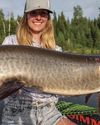
Find The Right Structure In Deep, Clear Water
With breathtaking scenery, vast amounts of water, and complex and diverse structure, clear water Canadian Shield lakes offer some of the most sought-after musky fishing in the world. A bucket-list destination for the passionate and determined angler, there’s something truly special about being in the sanctuary of the great Canadian Shield lakes.
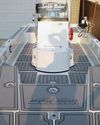
Multi-Species Or Bay Boat ... You Make The Choice
Is there really such a thing as a perfect musky boat? There are so many variables to choose from in the market today. Do I want a casting or trolling boat? Aluminum or fiberglass? Welded or riveted? Do I want a tiller, side console, dual console, or full windshield?
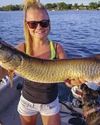
Region To Region
Region To Region
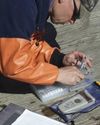
Genetic Study Yields Answers
STUDY SUGGESTS LEECH STRAIN IS NOT THE ‘SILVER BULLET’ FOR WISCONSIN MUSKY WATERS
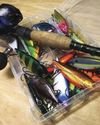
Crawling Crankbaits To Catch Cold Water Muskies
Crankbaits catch plenty of muskies during spring, summer and fall, but the key to catching ’skies in the very early cold water season on these lures involves some special tricks.